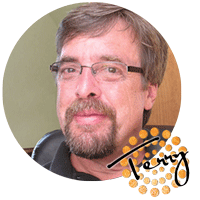Lately I've been fascinated by our modern cultural definition of “enemies.” In perhaps more raw and uncivilized times in our history, an enemy literally meant a physical threat or actual harm. Certainly people do still experience terror and violence from others, but now it seems in our Western culture, more often than not our enemies are “only” people we disagree with (on social media), and from a distance - someone we don't even know!
A root word keeps reappearing in my thinking as I walk forward - assumptions. I want to learn more, I want God to teach me more about how we think. How our thoughts affect our ideas, our speech and ultimately our actions towards others. It appears our objective conclusions aren’t so, well, objective...
Remember the ancient fable of the three blind men and the elephant? Having never encountered one before, each of them touches one specific part of the huge beast. All three quarrel with the other because each thinks he knows what it is based entirely on his own limited experience. And all three are wrong.
In our own attempt to make sense of our world, we constantly do the same. We filter our judgments through our limited experiences, and worse, distort them even more with latent pessimism, cynicism, and tragically misplaced anger. Ignorance is a killer, and not caring to seek the bigger picture of the whole elephant, is inexcusable. But we all do it daily. God help us. And forgive us!
Why is our country so divided right now? The real truth, a wise man once said, frequently lies somewhere near the middle of two extremes. That is not to say there aren't stands that need to be taken, very real wrongs that need to be righted, and certain absolutes that are, well, absolute. But I maintain that most of our disagreements are exaggerated and misplaced. I have been humbled as a parent when I realized that the very thing I was so frustrated about with my own child, was my own personal failure as well.
The human condition has plenty of inherent common ground, if we are honest and humble to seek it.
So why are generous assumptions important - even essential? First, assumptions are by nature flawed because they are so quickly adopted and emotionally held. Irresistible thought candy. Secondly, even if "true", assumptions are typically only a very small part of the whole truth. We must redeem assumptions for the good, and then build on them. And we must gather more nuggets of information, while snacking on humble pie.
Yes, there for the grace of God, go we.
We are all quite complicated and always in process. Isn't giving another the benefit of the doubt something that Jesus would do? Tragically, Amazing Grace isn't a song we think much about singing to others.
Generous assumptions are a gift to us. They are one of God's most powerful tools in our employ, but they must be given away!
About the Author
Terry is a man in constant motion to explore new horizons. He has a thirst for new places and faces, and a deep love for the natural world - with a weakness for waterfalls and sunsets. All of this venturing out helps to both ground and inspire him, because it opens him up to people, with their vast, collective array of experiences, outlooks and responses.
He finds all of this fascinating and sees that it has encouraged the growth of something crucial in his Christian development: empathy and compassion toward his brothers and sisters on this planet.






